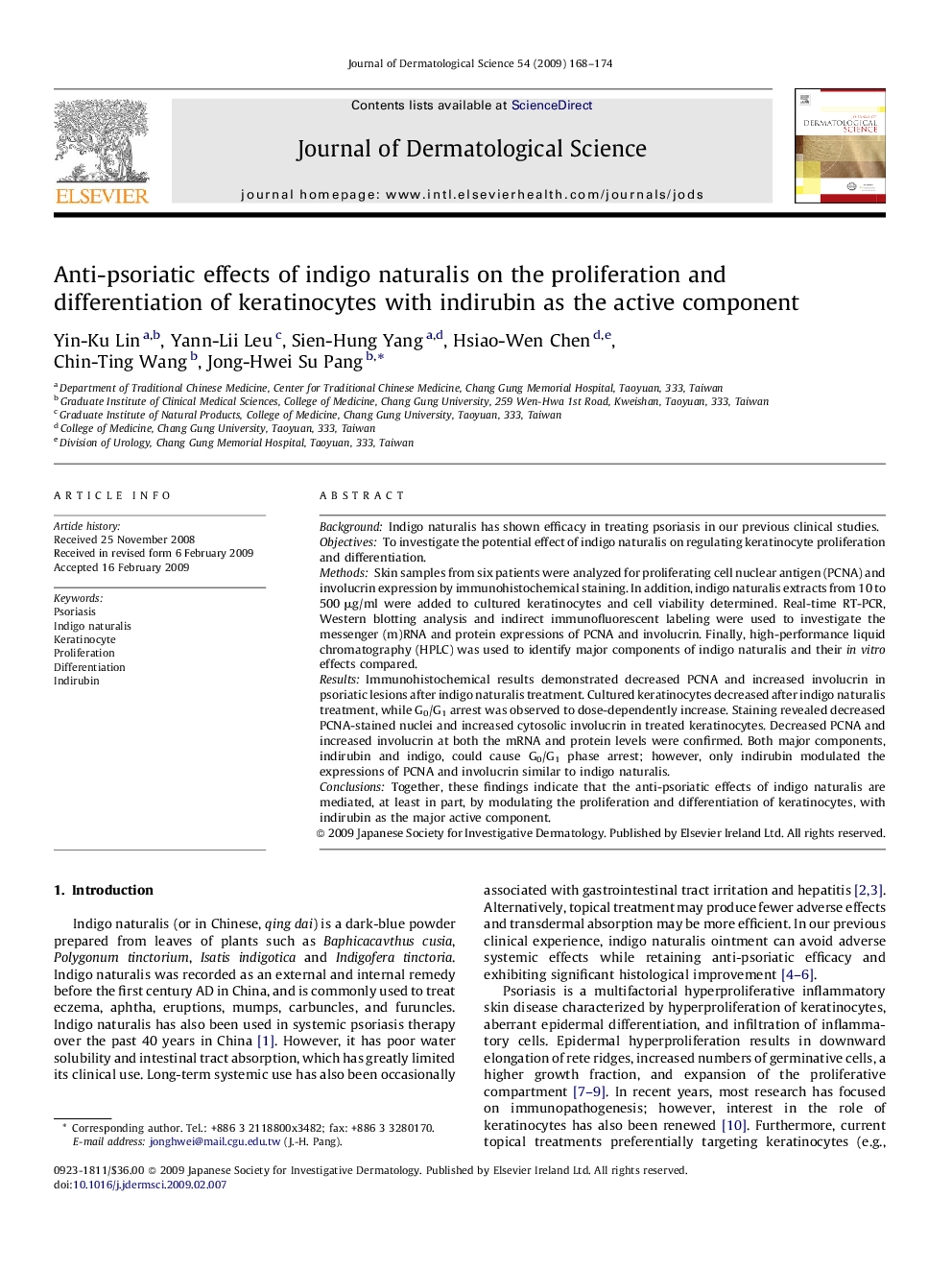| Article ID | Journal | Published Year | Pages | File Type |
|---|---|---|---|---|
| 3214054 | Journal of Dermatological Science | 2009 | 7 Pages |
BackgroundIndigo naturalis has shown efficacy in treating psoriasis in our previous clinical studies.ObjectivesTo investigate the potential effect of indigo naturalis on regulating keratinocyte proliferation and differentiation.MethodsSkin samples from six patients were analyzed for proliferating cell nuclear antigen (PCNA) and involucrin expression by immunohistochemical staining. In addition, indigo naturalis extracts from 10 to 500 μg/ml were added to cultured keratinocytes and cell viability determined. Real-time RT-PCR, Western blotting analysis and indirect immunofluorescent labeling were used to investigate the messenger (m)RNA and protein expressions of PCNA and involucrin. Finally, high-performance liquid chromatography (HPLC) was used to identify major components of indigo naturalis and their in vitro effects compared.ResultsImmunohistochemical results demonstrated decreased PCNA and increased involucrin in psoriatic lesions after indigo naturalis treatment. Cultured keratinocytes decreased after indigo naturalis treatment, while G0/G1 arrest was observed to dose-dependently increase. Staining revealed decreased PCNA-stained nuclei and increased cytosolic involucrin in treated keratinocytes. Decreased PCNA and increased involucrin at both the mRNA and protein levels were confirmed. Both major components, indirubin and indigo, could cause G0/G1 phase arrest; however, only indirubin modulated the expressions of PCNA and involucrin similar to indigo naturalis.ConclusionsTogether, these findings indicate that the anti-psoriatic effects of indigo naturalis are mediated, at least in part, by modulating the proliferation and differentiation of keratinocytes, with indirubin as the major active component.
